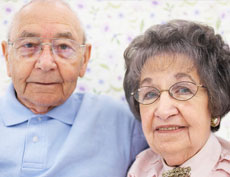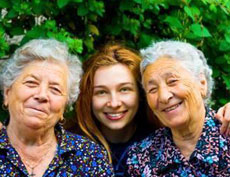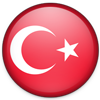United States
Tel: (877) 300-8988
Fax: (877) 664-5450
Email: info@alzinnovation.com
Greece
Tel: (877) 300-8988
Email: info@alzinnovation.com
Turkey
Tel: 0216 57526660216 5757937
staskale@bayindirhastanesi.com.tr
Mailing Address:
Ali Nihat Tarlan Cad. Ertaş Sok.
No: 17 İçerenköy – Ataşehir / İSTANBUL
Singapore
Tel: (877) 300-8988
Email: info@alzinnovation.com
Memory Nurture (Australia)
Call: 0402 943 053
Email: info@memorynurture.com
Website: www.memorynurture.com
Canada
Tel: (877) 300-8988
Fax: (877) 664-5450
Email: info@alzinnovation.com
Frequently Asked Questions
1. What is the Ashby Memory Method (AMM)?
 The AMM program is a structured series of interactive brain exercises and activities designed to improve Alzheimer´s symptoms. An innovative, proven therapy adapted from the field of brain injury rehabilitation (neuro-rehab), the principal behind the program is simple: By exercising specific cognitive abilities which we know are affected by Alzheimer´s disease, participants can function much better, for longer.
The AMM program is a structured series of interactive brain exercises and activities designed to improve Alzheimer´s symptoms. An innovative, proven therapy adapted from the field of brain injury rehabilitation (neuro-rehab), the principal behind the program is simple: By exercising specific cognitive abilities which we know are affected by Alzheimer´s disease, participants can function much better, for longer.
2. Does AMM alter a person´s current medical treatment plan?
No, AMM does not alter the participants current treatment plan – it can be used as a stand alone drug–free program, or in combination with the participant´s current prescribed medications. By starting AMM as soon as possible after diagnosis you will maximize the therapeutic benefits of the program. And while you may want to do some AMM everyday, one hour, twice a week is all that is required.
3. What are the benefits of the AMM program?
 Improved quality of life. This is the reason the AMM program was developed. We know that more than 80‰ of people diagnosed with Alzheimer´s live at home and are cared for by their family. AMM helps participants remain living at home longer, where they can enjoy continued access to familiar surroundings, as well as very important social, community, and family resources.
Improved quality of life. This is the reason the AMM program was developed. We know that more than 80‰ of people diagnosed with Alzheimer´s live at home and are cared for by their family. AMM helps participants remain living at home longer, where they can enjoy continued access to familiar surroundings, as well as very important social, community, and family resources.
Reduced caregiver stress and burden. The number 1 reason for initiating a move to institutional (memory) care is caregiver stress resulting from increasing Alzheimer´s symptoms such as personality and behavioural changes. AMM reduces impact of developing symptoms by helping the person better adapt to changes as they occur.
Healthcare cost savings. Caring for someone with Alzheimer´s disease is expensive. Suggested budget strategies for the management of Alzheimer´s disease include recommendations for delaying institutional care. Extending the time that care can be provided at home by a year or two is not just better for the person, it´s better for the budget too.
4. Is there a scientific way to score improvements seen with AMM?
 Doctors use a number of different tests to track changes in cognition due to Alzheimer´s disease. A widely recognized test used by physicians is the MMSE (Mini Mental State Exam). This test is scored out of a possible 30 points with higher scores indicating better functioning. For example – 30/30 would indicate that the person is cognitively well while 10/30 would be associated with the person needing almost total care. Improvements in MMSE scores while using AMM can range from 1.0 to 6.0 with test data indicating a mean average of 1.9 to 2.9 points depending on where the person is in the progression of the disease when beginning the program. Other variables include the age of the participant and co-existing health related issues.
Doctors use a number of different tests to track changes in cognition due to Alzheimer´s disease. A widely recognized test used by physicians is the MMSE (Mini Mental State Exam). This test is scored out of a possible 30 points with higher scores indicating better functioning. For example – 30/30 would indicate that the person is cognitively well while 10/30 would be associated with the person needing almost total care. Improvements in MMSE scores while using AMM can range from 1.0 to 6.0 with test data indicating a mean average of 1.9 to 2.9 points depending on where the person is in the progression of the disease when beginning the program. Other variables include the age of the participant and co-existing health related issues.
5. How was the AMM program created?
 The late Dr. Mira Ashby, MD, CM pioneered and began to use the science behind the AMM program over 25 years ago to treat people with traumatic brain injuries; it was this work that lead to her being awarded the prestigious Order of Canada in 1984. Two decades later in 2004, her son John Ashby began testing this same straight-forward therapeutic method with his own patients and soon discovered he had found the basis for an effective program that helps people with Alzheimer´s and other forms of dementia. Over 20 scientific papers and studies on cognition and memory in Alzheimer´s patients were reviewed and the resulting new program was originally named Cognitive Retention Therapy (CRT). This landmark program ignited international interest in the scientific community. Since then, thousands of hours of testing and refinement have contributed to the development of the AMM program we are using today.
The late Dr. Mira Ashby, MD, CM pioneered and began to use the science behind the AMM program over 25 years ago to treat people with traumatic brain injuries; it was this work that lead to her being awarded the prestigious Order of Canada in 1984. Two decades later in 2004, her son John Ashby began testing this same straight-forward therapeutic method with his own patients and soon discovered he had found the basis for an effective program that helps people with Alzheimer´s and other forms of dementia. Over 20 scientific papers and studies on cognition and memory in Alzheimer´s patients were reviewed and the resulting new program was originally named Cognitive Retention Therapy (CRT). This landmark program ignited international interest in the scientific community. Since then, thousands of hours of testing and refinement have contributed to the development of the AMM program we are using today.
6. How do I start the program?
Simply fill in the "Learn More" form on our website and an AMM representative will contact you directly. You can also call our toll free number 877-300-8988 to speak with someone to learn more about the program. The AMM program is available through authorized AMM Program providers in the United States, Canada, and the U.K. Call to get started today!
7. What if someone has had Alzheimer´s disease for a number of years? Is the program still helpful?
 There are a number of factors that can make a difference as to how well each individual responds to AMM. These include how old the person is, the type of dementia they have, how long ago they were diagnosed, medications, and other health issues. We have seen great results with people aged 39 to 99 years old with a variety of diagnosis so we recommend that you ask for our free in–home assessment. After completing a brief review of your needs an authorized AMM Provider can tell you if the AMM program is likely to help.
There are a number of factors that can make a difference as to how well each individual responds to AMM. These include how old the person is, the type of dementia they have, how long ago they were diagnosed, medications, and other health issues. We have seen great results with people aged 39 to 99 years old with a variety of diagnosis so we recommend that you ask for our free in–home assessment. After completing a brief review of your needs an authorized AMM Provider can tell you if the AMM program is likely to help.
8. How much does AMM cost?
Rates for service are set by individual AMM service providers depending on your area. If the cost of getting started on the AMM program is beyond your budget, there is help. Call us to enquire about the AMM fee support program.
9. Is there a contract I have to sign?
Before you begin the AMM program you will be provided with an agreement form which spells out details of the program, and your cost. No surprises, no contracts. We know that seniors on occasion have life events which can prevent them from continuing with the program – Simply notify your AMM service provider that your situation or circumstances have changed.
10. How long will AMM help?
Participants continue with AMM based on individual results. Most persons can expect to see positive results for approximately one to two years. Program sessions continue until you choose to stop or we recommend transition to alternate types of therapy.
Need more information? Fill out the "Learn More" form provided and an AMM team member will contact you directly! Learn More























